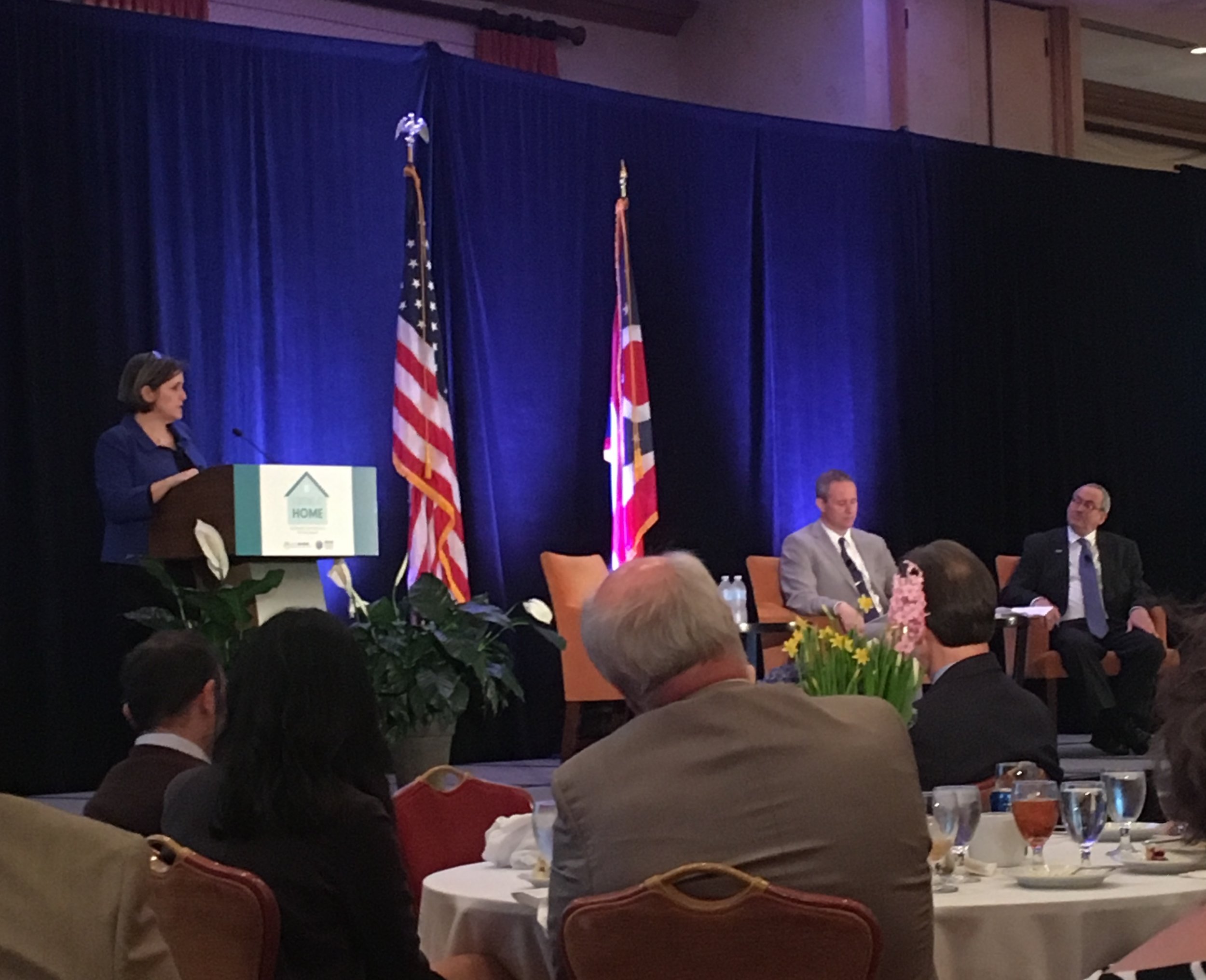By Torey Hollingsworth, GOPC Manager of Research and Policy Sarah Rosen Wartell, President of the Urban Institute, spoke about the connections between place and opportunity at the Starting from Home Conference in Columbus last week. Rosen Wartell discussed research illuminating the “geography of opportunity” – or the connection between where a child grows up and his or her long-term economic prospects – which was an animating theme for much of the conference. Neighborhoods can either serve as a “springboard” or “trap” for people living in poverty, and research has consistently found disparities within and between regions in providing access to opportunity.
Because some neighborhoods serve as better springboards than others, Rosen Wartell argued that moving to a different community needed to be a realistic choice for low-income people. She noted that there is some bipartisan consensus around this idea, with free market advocates championing the removal of regulatory barriers like exclusionary zoning. Because of that common ground, mobility programs could be an area of opportunity for federal policy moving forward. Rosen Wartell cautioned that long-term solutions to poverty are not only as simple as moving low-income people to high opportunity places. Strategies that bring higher-income people to low-income neighborhoods are equally important, because amenities and other services will follow new residents. Protections need to be put in place to make sure that existing residents are able to benefit from these new opportunities and can remain in neighborhoods that are changing.
The benefits of creating mixed-income neighborhoods are not limited to giving people living in poverty greater access to opportunity. Regions experience real costs from economic and racial segregation, including lost wages, lost productivity, higher crime rates, and drained public resources. Ohio’s largest metropolitan regions – Columbus, Cleveland, and Cincinnati – are among the most segregated nationwide in terms of income and race. Contending with this challenge could help make these regions both more equitable and more competitive.
Rosen Wartell noted that the 2016 Presidential election shone a spotlight on Ohio, particularly the significant economic change it is experiencing and the resulting growth in regional inequality. She suggested that Ohio has the opportunity to use this spotlight to demonstrate to the rest of the country that access to opportunity does not have to be “a zero sum game.” Given changing federal priorities, states can be “laboratories of creativity” in trying new approaches to creating economic opportunity. Ohio, she believes, is in a position to take the lead in developing pathways to broadly shared prosperity. Greater Ohio Policy Center is committed to advancing these important goals in our state through research and policy advocacy.


